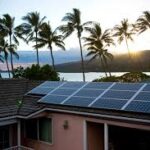It Will Be Easier For You To Invest In Renewable Energy After Reading This
February 13, 2018
Banks That Provide Loans For Rooftop Solar Projects In India
February 19, 2018Solar plus Storage Market In Australia
The extremely high costs of retail electricity in Australia has made it a hot market for solar energy plus storage systems. Sonnen and Tesla were the two players who were providing solar plus storage systems on a small scale to Australia before Tesla landed a big order for a large grid-scale battery of 100 MW size in South Australia. Tesla was able to build this system in a record time and the operations have been highly successful and helping meet the demand of the ancillary and wholesale markets.
This success has led the South Australian government to decide to fit 50,000 homes with solar plus storage systems. During the initial phase, government supported housing will be fitted with these systems before expanding the scale to other government institutions and infrastructure. These systems will not be developed using the pure play house owner owned systems but rather will be owned by the developer who will use these systems not only to supply power to the house but also to the wholesale and ancillary markets.
Also, read 7 Cents Solar Plus Storage Price By 2022 Could Bankrupt Most Indian Power Utilities
These systems will serve as a large virtual power plant (VPP) which can act as a dispatchable power source during times of high demand and earning revenues from supplying power to the balancing markets. This kind of VPP has already been developed privately by Sonnen which is offering a low-cost power service to Australian households under such a product offering. This order will make Tesla the biggest provider of solar plus storage systems in the world with about 250 MW of capacity and 650 MWh of storage. The government will support with tax incentives and loans.
You might also like Why Australia Building An Expensive Solar Thermal Power Even As PV Solar Plus Storage Goes Down To 3.6 cents
Besides Tesla, Huawei has also decided to enter the solar plus storage market in Australia. The company is launching its Fusion Home Smart Energy Solution which is compatible with a number of energy storage systems. The company will start off with LG Chemical batteries but wants to keep itself battery agnostic. This is an interesting move by Huawei as the company is not normally a big player in the installation business but more of a power electronics supplier.

